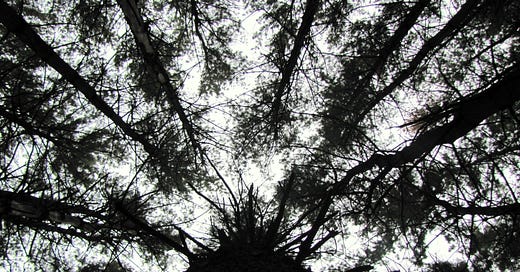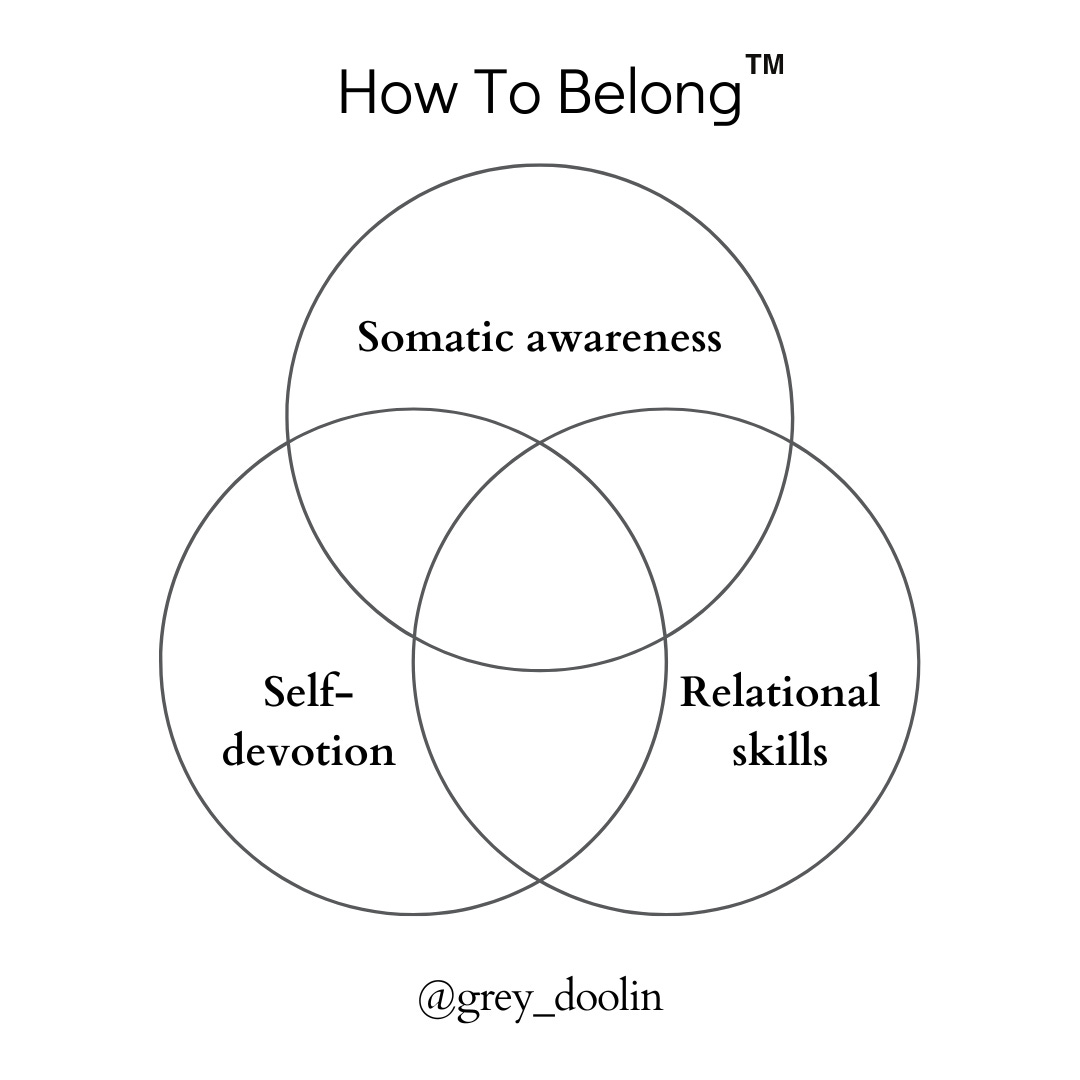I spend a significant amount of time thinking about belonging, both my own and that of others.
When I enter into new group environments, I’m always keenly aware of how well they create (or don’t) an atmosphere of warmth and welcome.
Some of that awareness is old hypervigilance, the residue from feeling like I didn’t belong for most of my life. And some of it is just plain old curiosity.
I’m curious because of things like:
-the current epidemic of loneliness
-the awakening that is happening in places like faith communities where people are beginning to question toxic beliefs, leadership, and models of community
-my own experience being part of numerous groups that call themselves communities but felt cold, distant, or were rife with unhealthy ways of relating
-hearing the stories of others who’ve had similar experiences
If belonging is such a fundamental human need and all of us are, in our own ways, searching for it, why is it so hard to find?
I’m curious and amazed by my experiences because the building blocks of belonging are actually quite simple.
Look at children: children feel like they belong when, after an absence from someone to whom they have an attachment (e.g., a caregiver), they’re met with joy and excitement upon reuniting.
It can be that simple.
It’s so good to see you. I’m so glad you’re here. I carry you with me, even when you’re not here.
Someone remembers our name. Someone tracks something that’s happening in our lives and asks us about it: how was your trip? How’s that situation with the co-worker you’ve been having issues with? How are you?
We know that we matter.
Just because our bodies ache a little more when we wake up in the morning, or our hair has grayed, or our forehead continues to grow in size as we lose said hair, it doesn’t mean that our internal mechanisms for belonging have shifted.
It still is that simple.
Then why do so many folks still struggle with chronic loneliness and a lack of true belonging?
This week on social media I presented my How To Belong (TM) framework. This is the framework that is the foundation of each of my offerings (and my beingness in the world tbh).
There are three core area: Somatic awareness, Self-devotion, and Relational skills.
It's not a linear model because you're not a linear being.
As you heal and integrate and grow and evolve, your body, relationship to self, and relationship to others will change.
But being centered in all three of these areas serves as an anchor through those changes.
Without somatic awareness, it's difficult to discern if a community or environment expands or constricts your body. Constriction isn't bad, but it's important information about fit and capacity.
Without Self-devotion, you will never be nourished by something outside of yourself. There will be a yearning that no community or group will ever fill.
Without Relational skills, it's impossible to put into practice things you never learned (through absolutely no fault of your own. I certainly wasn't offered a course or good modeling on healthy relationships growing up).
You can check out the original post to see the components of each of the core areas.
I’m in the process of creating some offerings based on the framework (beyond Heartbroken Open Mic and my 1x1 work). Stay tuned over the next couple of months for more on that.
If you want to start to feel this framework in your life now, you can book a 1x1 session with me.
Upcoming events:
May 22, 7pm CDT at Open Book in Minneapolis - Heartbroken Open Mic. I can’t wait to see you all in person again! I’ve missed you tremendously. You can pay at the door or purchase tickets ahead of time.
May 31, 12:30-1:30pm CDT via Zoom - Workshop: Beyond Survival and Our Wounding: Creating Nourishing Community. I’m so excited to be presenting this workshop as part of the Do Something: Identity(ies) Conference 2024–a pioneering conference that serves as a crucial platform for professionals, community members and allies seeking to enhance their understanding of trans and non-binary experiences to provide more affirming care. All presenters are trans, non binary, and/or many more non cis identities. For more information on the conference, check out the website. If you’re interested but unable to attend the conference, my workshop will be available for purchase after the conference.
Something that nourished me this month:
My body has been having a really hard time being back in the city since I got back from my trip at the end of March, so I want to share a somatic practice with you all that I’ve been using to help my overwhelmed body feel less overwhelmed and *slightly* less depressed.
One of the things I’m easily overwhelmed by is sound/noise. I live at an intersection in the city that can, at times, be extremely noisy: honking horns, loud mufflers, and the bane of my existence: motorcycles (I hate them, you all. Truly. What a public nuisance).
Stress appears in the body when our bodies are bracing against something that’s happening in the present moment or the anticipation of something happening.
So, I’ve been paying close attention to moments where there is no traffic noise coming into my apartment. I’ve been noticing when there is total quiet, or maybe the songs of birds in the morning, which my body finds pleasant.
And then I really, really let my body feel that quiet or the bird song. I might notice where in my body I can feel the quiet or bird song. I might notice the sensation of openness and expansion there, or a softening. I just notice and savor.
It doesn’t negate that noise is still often overwhelming for my body, but it does create more capacity in my body to cope with the noise when it will inevitably arrive. And it lets my body remember that there are moments where it’s not being overwhelmed by noise.
It helps me be present with the range of experience that is. Again, not to dismiss that I hate motorcycles, but to help my body remember that quiet and bird song also are part of its experience.
And it brings me more peace than attuning to noise even when noise isn’t present, ya know?
Is there something in your life that you might apply this practice to? If you try it, I’d love to hear what you find.
I’m glad you’re here,
Grey






